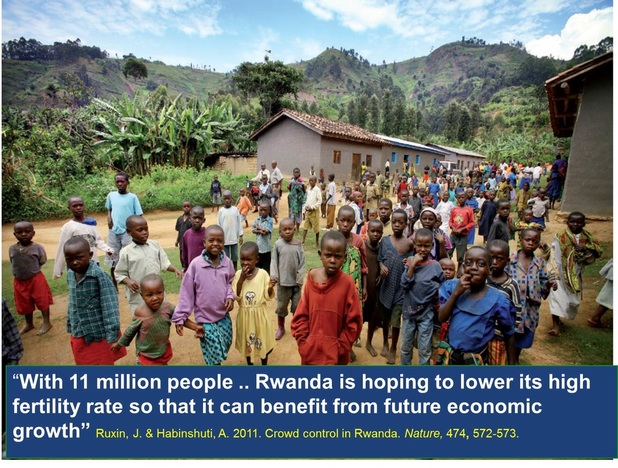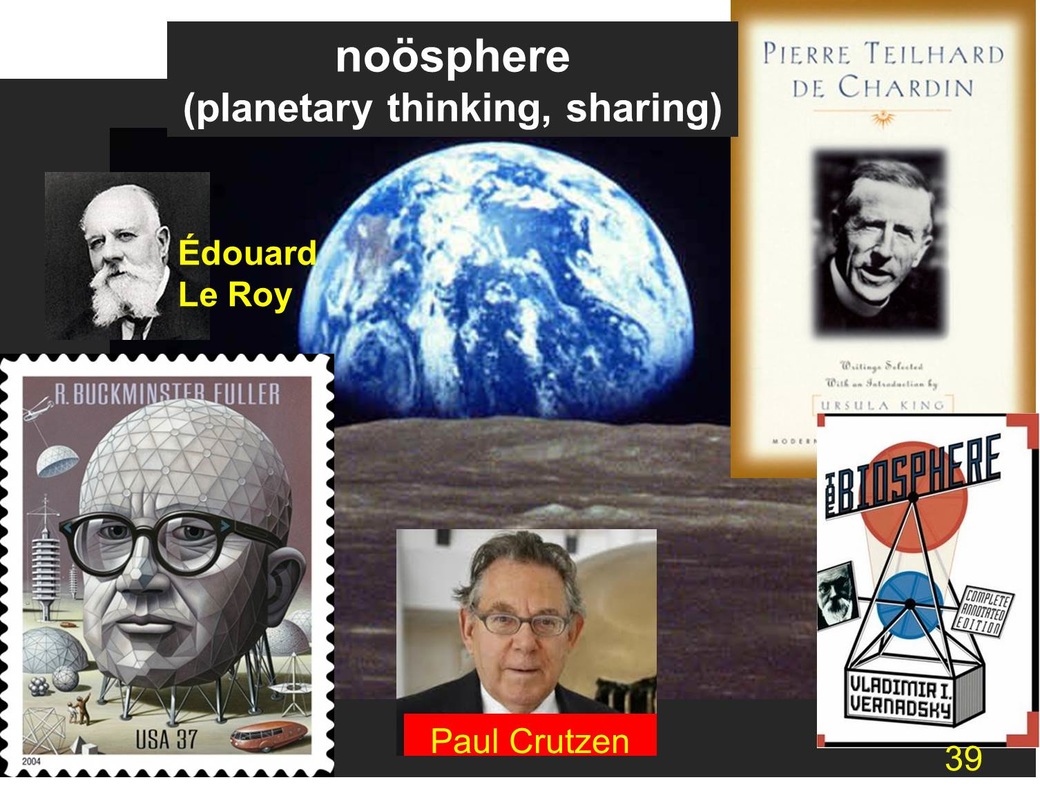 I recently found an article on an old BODHI website that still exists. It is a reprint of my letter published in 1996 called: Contemplating A One Child World - Fundamental re-thinking is needed (British Medical Journal, 312:907). Twenty years after I wrote that my views haven't changed a great deal on this matter, though I have read and published far more. I don’t have the full answers to development, and it is more complicated than I can explain here. However, I have long believed that cultural and demographic elements matter. In many parts of East Asia (including Thailand) progress has been made due to less inequality and (associated) the triggering of virtuous circles, so that low-income populations begin to “bootstrap” their own way from poverty. That is, when populations who seek help start to help themselves, their contribution can rapidly outpace that of aid. Remittances are an important contributor. I believe that lower fertility is a key step in triggering and sustaining these virtuous circles. In turn, the benefits of the economic takeoff that result can help solidify the factors that underpin lower fertility, such as excellent levels of education. From Ansley Coale to Ronald Reagan The eminent demographer Ansley Coale was prominent in arguing (from the late 1950s) that declines in human fertility can improve human well-being and promote economic growth through decreases in the "dependency ratio". For example, if a population has a comparatively high number of people of working age compared to children and youths then it can devote more resources to their education. This has nothing to do with child hating, nor eugenics, nor conspiracies for the West (which has long gone through its own demographic transition) to dominate. It has much more to do with human rights of the people alive, with reducing their poverty and improving their health. The argument at its most simple, is that the "quality" (skills and well-being) of the population is thought of as more important than the quantity. Competition for jobs among youths will be reduced; unemployment will decline. Also, increased birth spacing (2 or even 5 years apart) will lead to their better nourishment, less harm to the mother and parents (and other adults) with more time to love and nurture each child. In some parts of the world, including in Africa, much farming is subsistence. If farmers have a large number of children and their land is divided and share with each new generation then the size declines. In some places the efficiency of using the land also falls, so that a farmer might still be able to farm a hectare he or she has inherited, but in several small pieces. If the farm is large then many children could make the land more productive, by additional labour. But if (as occurred in Rwanda and is today occurring in Malawi) the average size of farms if critically small then its further division can lead to land so small that it is not enough to feed its owner. The caption in the figure below is misleading: it would be better written as: "Rwanda is hoping to lower its fertility rate in order to promote higher economic growth, per person". The African Academy of Sciences on Population: magical thinking? In 1993 56 of the world's scientific academies met to discussion population and development in the lead up to the UN World Conference on Population and Development held in Cairo in 1994. Most of the academies recommended that governments adopt an integrated policy on population and sustainable development. However, the African Academy of Science was the main dissenter, although three national academies in Africa (Egypt, Ghana, and Nigeria) did seem to understand the arguments made by Coale and summarised above: The African Academy said, in part (published in Population and Development Review, 20, 238–239): 6. "Whether or not the Earth is finite will depend on the extent to which science and technology is able to transform the resources available for humanity. There is only one earth - yes, but the potential for transforming it is not necessarily finite" (stress added). This approaches magical thinking, and is reminiscent of Julian Simon, reputed as Reagan’s favourite economist. Julian Simon and more magical thinking Julian Simon was very influential in the great turn-around on thinking on population which occurred leading up to the Mexico City meeting on population in 1984. About the new US position. at that meeting the American Population Association commented that the authors of the draft report were “either unaware of 50 years of demographic research, or deliberately ignored it”’ (stated in footnote 61 in Finkle and Crane's excellent article.) In 1986 the US National academy of Science further eroded support for Coale's view in their tortuously worded report "Population Growth and Economic Development". This was also greatly influenced by Simon, in what I have called this the “cornucopian enchantment” – the conceit that ingenuity will always trump scarcity. There are numerous cases (Ireland 1840s, Rwanda 1994, and now Syria) where scarcity has led to famine, conflict or epidemic; sometimes all three. Cornucopians generally ignore these exceptions, or perhaps consider them as unimportant and distracting. I spoke about these issues at a lunchtime seminar at WHO, in Geneva, in 2013, organised by Prof Marleen Temmerman, then director of the Department of Reproductive Health and Research. My sides can be viewed here, African leadership on the population growth factor There is encouraging evidence that some senior African-born demographers are beginning to rethink these positions. I have been in touch with two; They are Alex Ezeh and Eliya Zulu. Alex, a contributor to a very important paper published in Science in 2007 called "Return of the Population Growth Factor" makes the point that Africans can and should contribute more to research to improve human well-being. In this video Alex speaks of the importance of Africans leading the way for well-being centred research. He warns that without much more effort Africa “might go backwards”. He says nothing explicitly about population growth or the demographic dividend, but some of the images (crowds and numerous children, as well as poverty), do. Alex is the first African affiliate of Health-Earth, of which I am the founding co-chair. He is also a Planetary Health commissioner. This concerns the health of civilisation and the natural systems on which it depends. Eliya is immediate former-President of the Union for African Population Studies and also served on the UK Royal Society Study Group that produced the 2012 report “People and Planet" and a co-applicant for the Wellcome Trust grant application I am currently leading in the Our Planet Our Health round. The noösphere, the Anthropocene, and our best hope for happiness The noösphere is the idea of planetary consciousness. It sounds visionary, but we have come a long way in the almost 100 years since the word was coined - and its ideas go back at least 100 years earlier, including to the great German naturalist and explorer Alexander von Humboldt in 1826. Consider the telegraph, the telephone, the radio, satellites, email and now the world wide web. In 1943 the great Russian scientist Vernadsky published a paper called the Biosphere and the Noosphere". A recent progression in this thinking is the concept of the Anthropocene, coined by Nobel Laureate Paul Crutzen. This refers to the fact that the Earth system has now substantially been changed by one species: our own. Many of these changes are beneficial for human well-being, but the Earth system is still limited. We also have ethical, as well as self-interested reasons to share this planet with other species, just as this Siberian tiger (Amur) and its friend the goat (Timur) share their space. At some point in the evolution of our planet humans will have to stabilise their population, learn to live within their mean, and leave some resources to other species. Such a world will have far less human poverty and, I believe, there will be much more happiness.
6 Comments
25/1/2016 21:38:07
Great article, and I loved the way you expressed the quality V quantity situation so clearly. While some in an advanced First World nation might be able to have larger families, the sheer cost of food itself is a major issue in developing nations. I also like the women’s rights angle. Who can be against educating and empowering young girls so they grow up to have a brighter future? That it also solves population growth at a rate of one less child per 3 years education (according to UN studies) is just an added bonus.
Reply
Scott Trimingham
26/1/2016 10:28:41
Two editing notes: should the word "associated" in the second paragraph in parentheses instead be between the words "the" and "triggering"? And, in the first sentence, should the word after the Rwanda graphic be "discuss" and not "discussion"?
Reply
26/1/2016 15:45:57
Hi Scott,
Reply
Colin Butler
30/1/2016 18:07:00
Thanks both .. "less inequality and (associated) the triggering of virtuous circles" .. I meant to imply these two go together .. less inequality is despised and resisted by the rich and powerful and wanted by everyone else (btw note that I do not believe in total equality) .. virtuous cycles get triggered by lower fertility and also by lower inequality (at least in high-fertility environments, eg from 7 children per mother to 3) and at the same time less inequality (eg spreading of education) can help lower fertility.
Reply
Colin Butler
7/2/2016 03:06:11
There are now an estimated 200,000 people who have fled Burundi. See http://www.aljazeera.com/news/2016/02/burundi-militias-hunting-refugees-tanzania-160205141830846.html
Reply
Your comment will be posted after it is approved.
Leave a Reply. |
AuthorColin Butler
|
